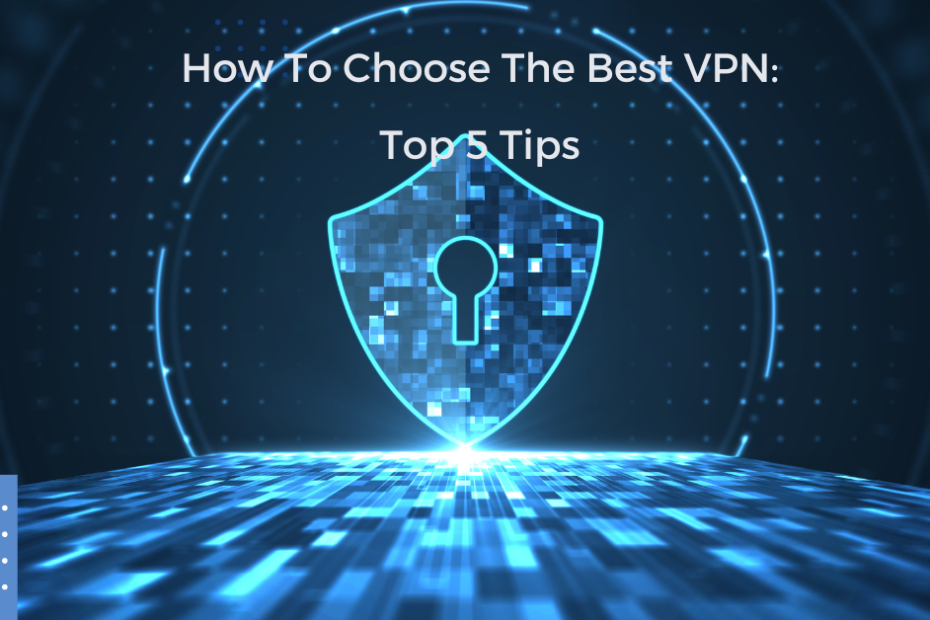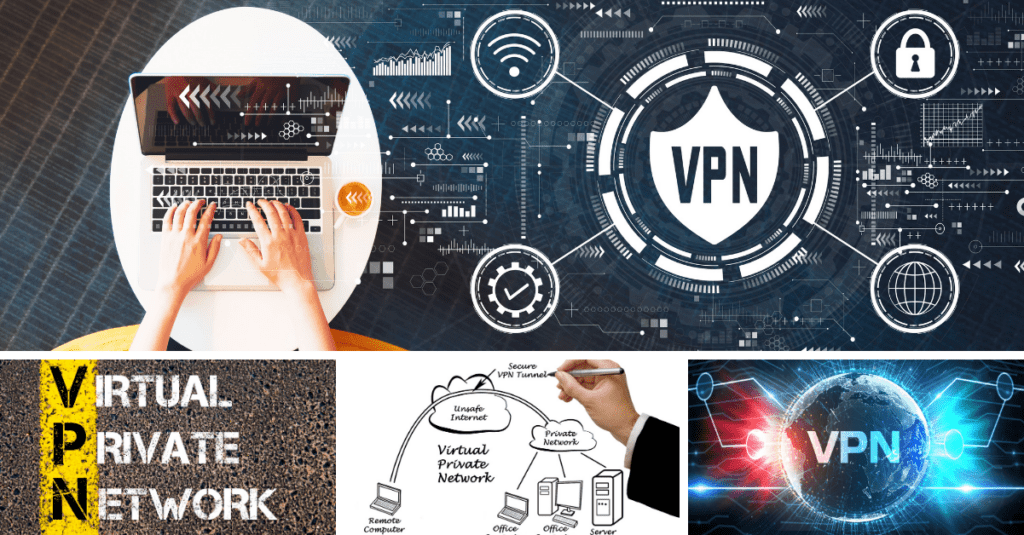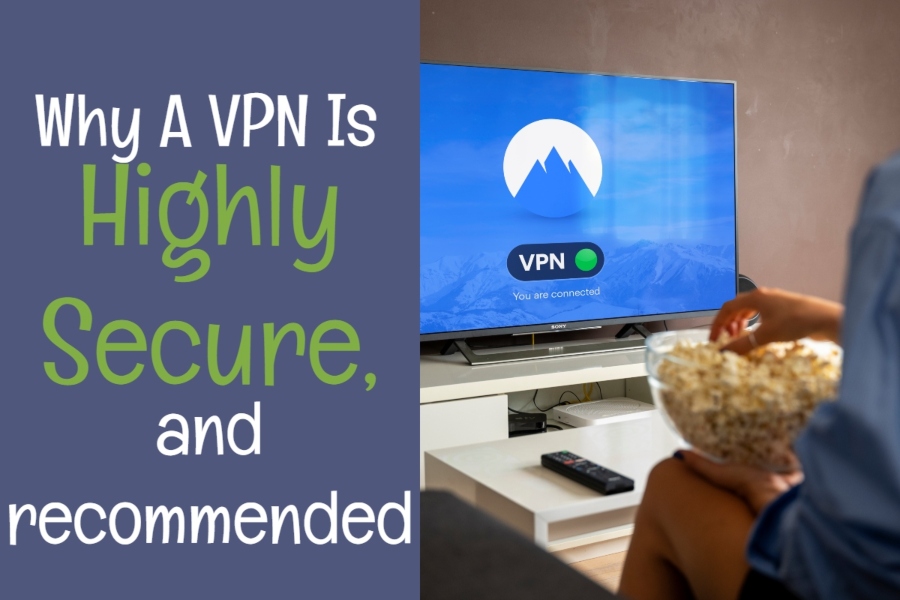Are you looking for a way to protect your data online? Do you want to access geo-locked streaming services without worrying about censorship or restrictions? A virtual private network (VPN) is the answer.
With the number of VPN providers growing daily, choosing the best one for your needs can be challenging. It’s essential to understand each provider’s features and how well those features match what you need from a VPN service.
Selecting the right VPN service provider can be intimidating if you’re unfamiliar with the criteria to consider. The key is finding a provider that meets your security and performance needs. Here are five tips to help you choose the best VPN service provider for your needs.
5 Tips for Choosing the Best Virtual Private Network Service Provider
Innovation and Technology in VPN Models
The Virtual Private Network (VPN) industry is rapidly evolving, driven by technological advancements and the growing need for secure, private internet connections in both personal and professional spheres. Innovations in VPN technology have significantly enhanced the functionality and security of VPN services, providing users with robust tools to safeguard their online activities.
Here’s how innovation and technology are transforming VPN models:
- Enhanced Encryption Techniques
Innovation:
- Advanced Encryption Standards (AES): Most VPNs now utilize AES-256 encryption, which is considered the gold standard of data security. Governments and security experts worldwide use this virtually impregnable encryption method.
Technology:
- Quantum Cryptography: Some VPN providers are beginning to explore quantum-resistant encryption methods to prepare for a future where quantum computing could potentially break current encryption standards.
- Protocol Innovation
Innovation:
- WireGuard® Protocol: This is a newer VPN protocol known for its simplicity and high performance. WireGuard operates at the kernel level, offering improved speed and security compared to older protocols like IPsec and OpenVPN.
Technology:
- Multiprotocol Label Switching (MPLS): Although traditionally used for speeding up traffic flows on a network, MPLS is now also integrated into some enterprise VPN solutions to enhance data transmission efficiency across VPNs.
- Cloud Integration
Innovation:
- VPN as a Service (VPNaas): Many businesses are moving their VPN services to the cloud. This reduces hardware dependency, extends global reach, improves scalability, and simplifies management.
Technology:
- Cloud-based management platforms enable users to manage multiple VPN connections from a single dashboard, thereby enhancing network control and visibility.
- Improved User Authentication Methods
Innovation:
- Biometric Authentication: Integrating biometric data, such as fingerprints or facial recognition, into VPN access provides a higher level of security than traditional passwords.
Technology:
- Zero Trust Architecture: This security concept requires all users, whether inside or outside the organization’s network, to be authenticated, authorized, and have their security configurations continuously validated to ensure a secure posture before granting or maintaining access to applications and data.
- IoT Security Enhancements
Innovation:
- Dedicated IoT VPN Solutions: With the proliferation of IoT devices, dedicated VPN solutions are being developed to secure IoT networks, which are particularly vulnerable to attacks.
Technology:
- Device-to-Device Encryption: Techniques are implemented to ensure end-to-end encryption between IoT devices, which often lack robust built-in security features.
- Adaptive Security
Innovation:
- AI and Machine Learning: VPNs are increasingly utilizing AI to monitor network traffic patterns and automatically block suspicious activities, thereby dynamically improving security based on traffic behavior.
Technology:
- Behavioral Analytics: By analyzing user behavior, VPNs can detect anomalies that may indicate a security threat, offering a more proactive security stance.
- Integration with Other Security Tools
Innovation:
- Unified Threat Management (UTM): VPN services are integrated with other security tools such as firewalls, anti-virus software, and intrusion detection systems to provide a comprehensive security solution.
Technology:
- SD-WAN Integration: Combining SD-WAN with VPNs enables more flexible and performance-optimized routing of network traffic, which is particularly beneficial for organizations with multiple branches or a largely remote workforce.
These innovations and technologies enhance VPN security and functionality, contributing to broader digital transformation strategies by enabling secure and efficient remote access and data protection across increasingly complex network environments.
Virtual Private Network with Netflix?
Netflix recently changed its service so that instead of blocking VPNs outright, it only shows content that the user can actually watch. As such, if it detects you’re connected to a VPN, you’ll only be able to stream shows from your actual location.
Can you use a VPN on Netflix?
If you are looking to stream Netflix’s US catalog from anywhere, you need to unblock Netflix with a VPN. However, since this popular streaming platform keeps banning VPN servers, it’s important to stay updated on which Virtual Private Networks are currently working.
How to use a virtual private network on Netflix?
Using a VPN on Netflix is an easy feat. Just follow these steps and you’ll be watching your new favorite show in no time:
- Pick a VPN service that works with Netflix and buy a subscription
- Download the app and install it on your device
- Connect to the VPN server of the country whose content you want to unblock
- Open your browser and go to Netflix (or open the Netflix app)
In case you get the dreaded Netflix proxy error, pick a different server of the same country, or even try another country altogether. Usually, a specific show or movie is available in multiple countries.
Stay Hidden from Competitors: Top VPNs for Secure SEO Research

- ExpressVPN – TechRadar has tested over 200 of the best VPN providers, and the number one VPN provider right now is ExpressVPN. It ticks all the boxes – fast server connections, severe security smarts, and is ridiculously easy to use. Simply put, it’s the very best you can get, and you can try it for a 30-day risk-free
- NordVPN is the biggest name in the business. It is jam-packed with features, unblocks loads of streaming services, and boasts extra privacy perks like ‘Double VPN’ security and an independently audited no-log policy. This seriously impressive VPN is an even better value when you subscribe for longer.
- Surfshark – easy-to-use VPN that’s excellent value
If you’re more concerned about grabbing a bargain than going for the all-out best above, then Surfshark should be on your shortlist. From just $2.50 USD/£2/$AU3.50 per month, it’s a fantastic, premium option that’s super simple to use and has become a TechRadar favorite.
Source & Credits:
https://www.techradar.com/vpn/best-vpn
https://cybernews.com/how-to-use-vpn/



Please consider adding this thorough technical resource . https://www.vpnhacks.com/best-vpn-kodi.html
Thanks for the advice, I will consider
done & thanks
Which one do you recommend?
Prioritize security features. Look for VPNs that offer strong encryption protocols like OpenVPN, advanced security measures like kill switch and DNS leak protection, and a strict no-logs policy. Your online privacy and data protection should be their top priority.
Thank you for your sharing!